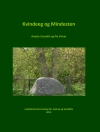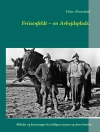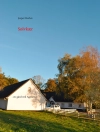This volume introduces a strategic interdisciplinary research agenda on arrival infrastructures. Arrival infrastructures are those parts of the urban fabric within which newcomers become entangled on arrival, and where their future local or translocal social mobilities are produced as much as negotiated. Challenging the dominance of national normativities, temporalities, and geographies of “arrival, ” the authors scrutinize the position and potential of cities as transnationally embedded places of arrival. Critically interrogating conceptions of migrant arrival as oriented towards settlement and integration, the volume directs attention to much more diverse migration trajectories that shape our cities today. Each chapter examines how migrants, street-level bureaucrats, local residents, and civil society actors build—with the resources they have at hand—the infrastructures that accommodate, channel, and govern arrival.
Table des matières
1. Migration and the Infrastructural Politics of Urban Arrival.- 2. Welcome to the City? Discursive and Administrative Dimensions of Hamburg’s Arrival Infrastructures around 1900.- 3. NGOs as Arrival Infrastructures: Pathways to Inclusion for Immigrants in the U.S. and Canada.- 4. Governing Newcomers’ Conduct in the Arrival Infrastructures of Brussels.- 5. Rebordering Europe from the Margins since the 1970s: A History of a Layered Arrival Infrastructure for the Mobile Poor in Amsterdam.- 6. Migration and the Resourceful Neighborhood: Exploring Localized Resources in Urban Zones of Transition.- 7. “Soft” Urban Arrival Infrastructures in the Periphery of Metropolitan Areas: The Role of Social Networks for Sub-Saharan Newcomers in Aalst, Belgium.- 8. First Arrivals: The Socio-Material Development of Arrival Infrastructures in Thuringia.- 9. Arrival in-between: Analyzing the Lived Experiences of Different Forms of Accommodation for Asylum Seekers in Norway.- 10. The Politics of Temporariness and the Materiality of Refugee Camps.- 11. From Forced Migration to Forced Arrival: The Campization of Refugee Accommodation in European Cities.
A propos de l’auteur
Bruno Meeus is Senior Lecturer in Human Geography at the University of Fribourg, Switzerland, as well as Associate Researcher in the Cities and Newcomers Project at the Vrije Universiteit Brussel, Belgium.
Karel Arnaut is Associate Professor at the Interculturalism, Migration and Minorities Research Centre (IMMRC), as well as Program Director of Anthropology, both at KU Leuven, Belgium.
Bas van Heur is Assistant Professor of Human Geography and Urban Studies, Director of the Cosmopolis Centre for Urban Research, and Director of the Brussels Centre for Urban Studies at the Vrije Universiteit Brussel, Belgium. He is also Programme Director of Master degrees in Urban Studies.











